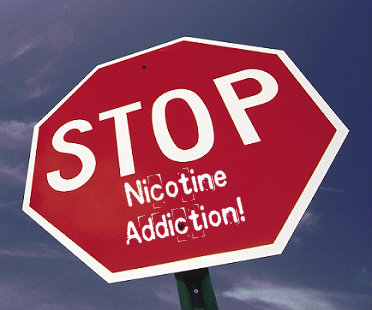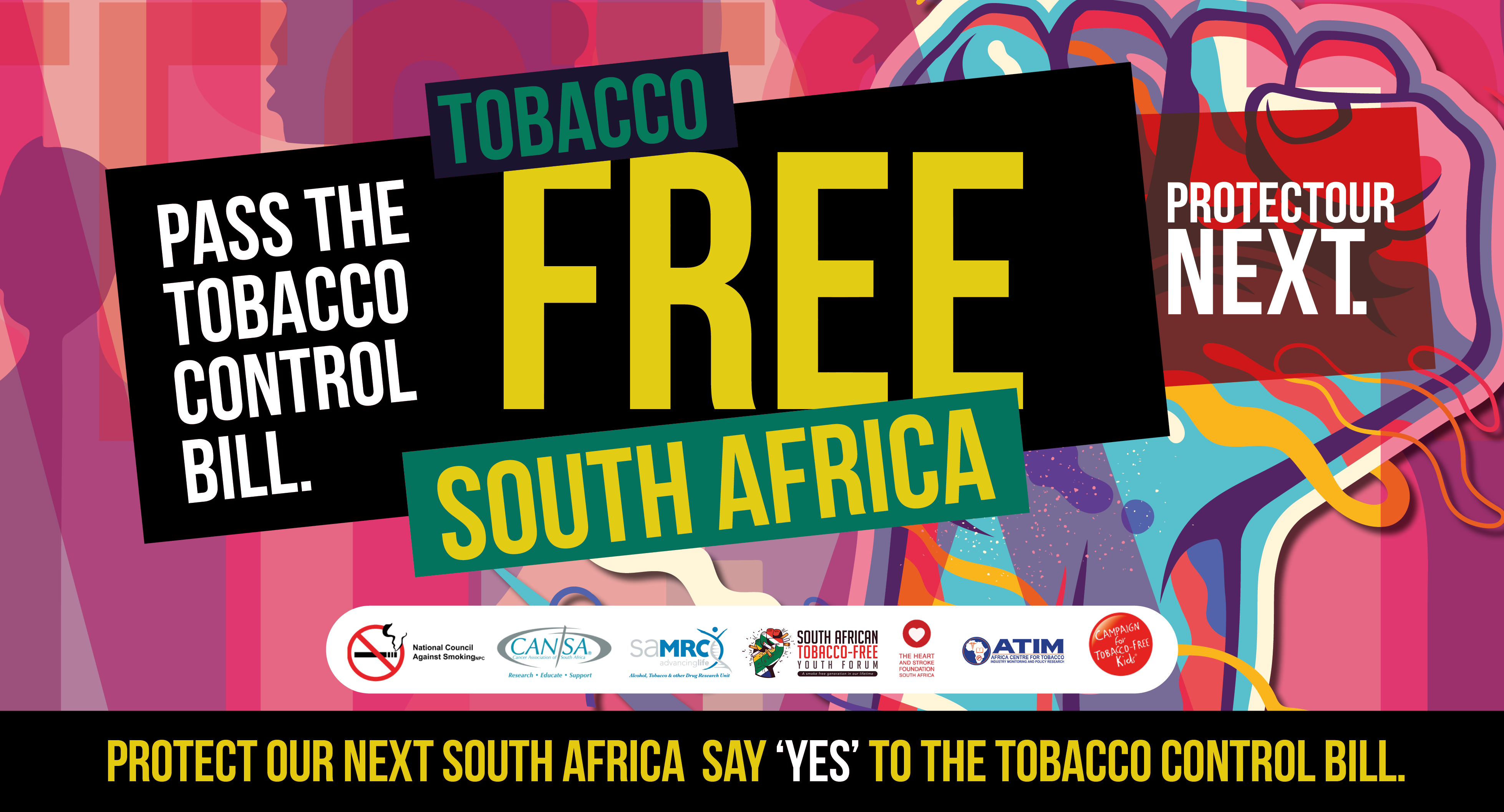Public hearings on the Tobacco Products and Electronic Delivery Systems Control Bill (B33-2022) hosted by the Parliamentary Portfolio Committee on Health reflect strong support for the proposed new tobacco control legislation. Hearings concluded in Limpopo over the weekend, following hearings in North West Province earlier this month. Protect our Next partner organisations, representing diverse public health and research expertise, have attended all the hearings and warn of persistent distortions of the facts, fueled by the tobacco and e-cigarette industry’s efforts to block the bill to protect their profits at the expense of public health.
“While it is heartening to see strong support, it is apparent that misrepresentation of the facts, scare tactics and in some cases, blatant untruths continue to infiltrate public discourse on the Bill,” says Zanele Mthembu, public health policy and development consultant and the convenor of Protect our Next. “These hearings present a vital opportunity for citizens to air their views and also to learn more about the Bill and what it means for public health and sustainable development in their communities. We need to ensure that discussions are based on evidence and facts, not misconceptions and scare tactics perpetrated by an industry that puts profit before people’s health. This also highlights the critical need to educate the public on the harmful nature of tobacco and e-cigarette products, including tactics employed by the industries to oppose public health policies.”

The 2021 Global Adult Tobacco Survey for South Africa (GATS-SA) reveals that 12.7 million people (29.4% of the population) use tobacco, the highest rate among African countries which have conducted a similar survey, says Dr Catherine Egbe, lead investigator of GATS-SA and Specialist Scientist at the Mental health, Alcohol, Substance use and Tobacco Research Unit of the South African Medical Research Council. Dr Egbe says that the legislation is designed to reduce tobacco and e-cigarette consumption, protecting public health and especially the next generations of South Africans, which is being heavily targeted by the industry.
“To defend its interests, the tobacco industry strategy is to pit communities against the government with claims about a complete ban on e-cigarettes and tobacco products, harsh penalties including imprisoning smokers, an increase in illicit trade and job losses,” says Kgomotso Kali, Project Lead at the Africa Centre for Tobacco Industry Monitoring and Policy Research (ATIM), at the University of Pretoria. “These are the only arguments they have, and are either inaccurate or over-exaggerated and unsubstantiated . In fact, the tobacco industry’s products impose massive healthcare costs, cause premature death and suffering, drain household and government finances and harm our environment. It’s time for us to ensure stronger tobacco control policies to reduce tobacco consumption and curb this harm.”
Subscribe to my newsletter here!
Economic impact
At the hearings, supporters of the Bill, such as Dr Bulela Vava of the Public Oral Health Forum, underscored the financial strain that smoking-related illnesses put on the healthcare system. They pointed out that tax revenues from the tobacco industry, estimated at about R13 billion, are far outweighed by the R42 billion (about 1% of the GDP) spent by the Department of Health on treating tobacco-induced illnesses, including costs related to premature deaths and lost productivity. Supporters argued that the provisions of the bill will reduce the burden of treating tobacco-related diseases on the healthcare system.
In the farming community of Limpopo, concerns were expressed about job losses and the impact on the tobacco-growing industry. Small business owners raised their concerns about loss in business revenues. “However, these concerns were not substantiated, confirming the fear-mongering perpetuated by the tobacco industry in an attempt to block the Bill,” says Mthembu. “This is another example of how the tobacco industry advances its interests by exploiting innocent people.”
Prof Lekan Ayo-Yusuf, Director of the National Council Against Smoking (NCAS) and Head of the School of Health Systems and Public Health at the University of Pretoria, points out that as observed in South Africa in the past and in other countries that have passed similar laws, the tobacco and e-cigarette industries often exaggerate the negative economic and employment impacts of tobacco control and tax policies to oppose any regulations that might reduce their sales and profits. However, studies show that a decrease in tobacco expenditure is usually associated with an increase in expenditure on other goods and services in the economy, creating jobs in these sectors. “The industry mostly passes on the increased taxes to the consumers, hence any increase in price does not directly impact their profits, as reflected in dividends consistently paid out to their shareholders year after year. If people stop smoking, the revenue from excise taxes on tobacco and related products doesn’t disappear, they spend it on other things instead. This could then help other industries grow and create healthier jobs and a more sustainable economy.”
Tobacconomics research reports suggest that tobacco control policies, including tobacco tax, have either no effect or a net-positive effect on overall employment, particularly in net-importing countries. The number of jobs dependent on tobacco has been decreasing in most countries, mainly due to advancements in farming and manufacturing processes to maximise profit for shareholders, rather than the impact of tobacco control laws or increases in taxation.

While illicit cigarette trading remains a challenge in South Africa, it is not an intractable challenge, as the tobacco industry has been accused of complicity in large-scale illicit trading, says Ayo-Yusuf. “Industry have also recently been misrepresenting the extent of illicit trade as being 70% of the market nationally, when in fact their own commissioned research shows that the overall proportion of stores found with illicit cigarettes had fallen to about 34% as at March 2022. The tobacco industry seems to have used the over-exaggeration of illicit trade problem to manipulate public opinion and to oppose further increases in tobacco excise tax.”
Subscribe to my newsletter here!
Support for smoke-free spaces
Citizens showed strong support for smoke-free zones, a key proposal within the bill, emphasising this will better protect non-smokers from the dangers of second-hand smoke inhalation. This is aligned with the results of GATS-SA, says Dr Catherine Egbe. “While industry would have us believe otherwise, it’s clear that citizens overwhelmingly support the bill, with nine out of ten people agreeing with a ban on smoking in indoor and certain outdoor public places. Results also show that nine out of ten South Africans also understand that breathing other people’s smoke can cause serious illnesses in non-smokers.”
Introducing plain packaging
The Bill further includes clauses that empower the Minister to regulate the manufacturing, testing, packaging, labelling of tobacco products and electronic delivery systems. Standardised packaging for tobacco and non-tobacco-based products, another provision of the bill, was also favoured. Supporters argue that plain packaging will prevent producers from attracting young people with colourful packages and will help reduce consumption. Concerns were raised about children’s exposure to tobacco products and children spending time they ought to use for studies on smoking cigarettes or using ‘vapes’ because they are addicted to nicotine, with supporters arguing that the Bill’s passage would guarantee their protection. “What we currently have is simply not effective,” says Egbe. “The plain packaging and graphic warning policy has worked in other countries and is well supported. In South Africa, 58% of smokers said graphic health warnings, showing the health consequences of tobacco use, would encourage them to quit. As for e-cigarettes, they are not even regulated currently, so there is need to bring them under proper regulatory framework.”
Backing for e-cigarette regulation
The proposed regulation of electronic delivery systems also received strong backing. Speakers expressed concern over the targeting of youth by marketers of electronic cigarettes, also called vapes, exposing them to harmful substances. Supporters argued that the Bill addresses a regulatory loophole, providing a framework for regulating the marketing, sales, standards, and use of these products. Many young people, including those representing the South African Tobacco-Free Youth Forum, criticised producers of tobacco and electronic delivery systems, saying that these industries prioritise their profits over the wellbeing of people, especially that of young people.
There is already enough evidence of harm for 107 countries globally to have chosen the path of regulating, or in some cases completely banning, e-cigarettes, according to Dr Catherine Egbe. GATS-SA shows that emerging products, including e-cigarettes and hookah, are mostly used by younger age groups. The highest percentage usage of e-cigarettes in the age 15-24 category at 3.1% (overall prevalence is 2.2%), while 7.1% of this age group are using hookah. “This is an alarming statistic for harmful products. This is not the group that would be using them to stop smoking. These products are a major concern for parents, schools and communities, and should be regulated in South Africa. While those against the bill ask our government to look towards countries such as Sweden and the UK for guidance, in these countries, e-cigarettes are in fact regulated!”
Stopping indiscriminate marketing
Egbe says the regulation of advertising, another tenet of the Bill, is critical. “We’ve all seen the prominent, brightly coloured displays of e-cigarettes in malls, kiosks and stores. You don’t see cigarettes displayed like this, because it is not allowed. However, because the current law doesn’t include e-cigarettes, the industry exploits this legislative vacuum. The youth is clearly their target.”

Sanele Zulu from the South African Tobacco-Free Youth Forum (SATFYF) emphasised the importance of shielding young individuals from becoming targets. “Nearly 80% of young people aged 15 to 24 buy their cigarettes from Spaza shops and kiosks. According to GATS-SA, nearly 75% start smoking before they are fully capable of distinguishing between addiction and non-addiction. The research shows 18% begin before they turn 15, and 43% by the time they’re 16. It’s unacceptable for young people, who are still forming their identities, to be easily exposed to the trap of nicotine addiction.”
Supporting NHI implementation
Lorraine Govender of the Cancer Association of South Africa (CANSA) says that evidence-based tobacco control interventions as included in the Bill make sense from an economic as well as a public health standpoint. “Tobacco control is a critical measure to reduce the economic burden of non-communicable diseases (NCDs) in South Africa, mostly cardiovascular disease, cancers, chronic obstructive pulmonary disease and diabetes. NCDs account for the deaths of over 50% of South Africans prematurely every year. Tobacco adds to the economic and human resources costs of implementing the NHI, and these costs would be subsidised by taxpayers while the tobacco industry reaps the profit. It’s time for South Africa to strengthen our tobacco control legislation and pass the Bill. It can only benefit our economy, our environment and our health. It’s time we all say ‘YES’ to the Tobacco Products and Electronic Delivery Systems Control Bill. We look forward to further hearings.”
(ENDS)
Subscribe to my newsletter here!
Available for interview:
Dr Catherine Egbe, Specialist Scientist in the Mental Health, Alcohol, Substance use and Tobacco Research Unit (MASTRU) at the South African Medical Research Council (SAMRC)
Prof. Lekan Ayo-Yusuf, Director of the National Council Against Smoking (NCAS) and the Head of the School of Health Systems and Public Health at the University of Pretoria, Director of ATIM
Sanele Zulu, Convenor: South African Tobacco Free Youth Forum
Lorraine Govender, National Manager, Health Promotion, CANSA
Zanele Mthembu, Public Health Policy and Development Consultant, Convenor: Protect our Next
PROTECT OUR NEXT PRESS KIT 2023:
https://drive.google.com/drive/folders/1_qWLo8lOK9zza_3kcy6R7E5SMHOC1o7Z?usp=sharing
About Protect our Next
Organisations forming part of the #protectournext partnership include the National Council Against Smoking (NCAS), the Cancer Association of South Africa (CANSA), the South African Medical Research Council (SAMRC), the Heart and Stroke Foundation South Africa (HSFSA), the South African Tobacco Free Youth Forum (SATFYF) and The Africa Centre For Tobacco Industry Monitoring and Policy Research (ATIM). Together, these organisations are steadfast in driving awareness of the dangers of tobacco and e-cigarettes, while campaigning for the Control of Tobacco and Electronic Delivery Systems Bill to be passed.
www.protectournext.co.za
@protectournext
